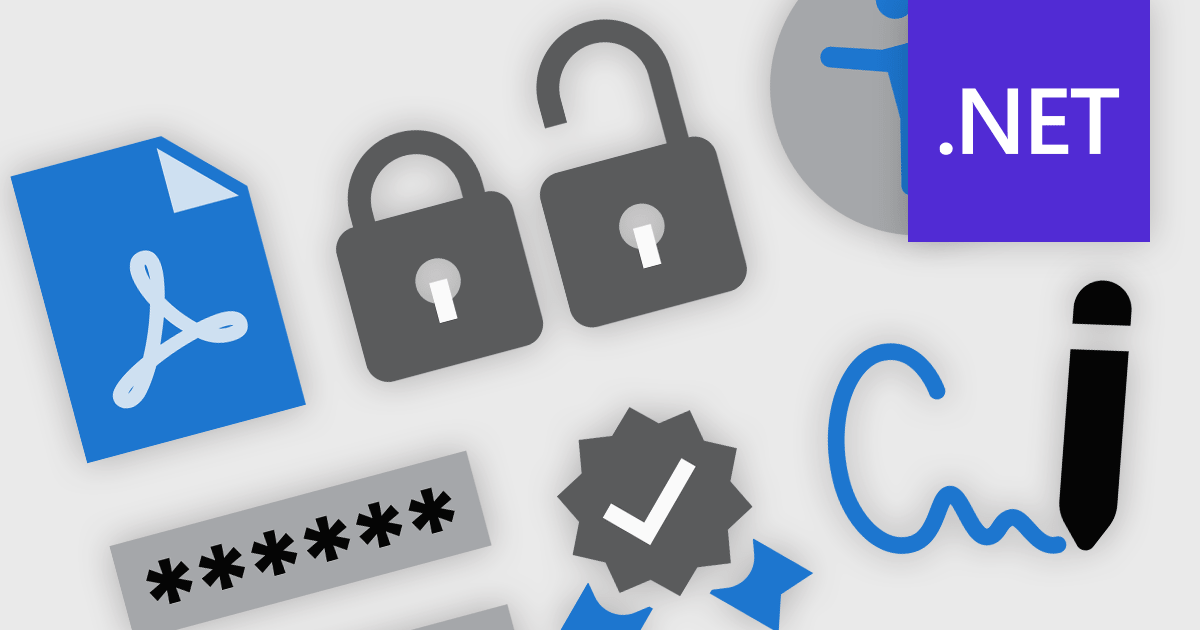公式サプライヤー
公式および認定ディストリビューターとして200社以上の開発元から正規ライセンスを直接ご提供いたします。
当社のすべてのブランドをご覧ください。

英語で読み続ける:
PDF security and standards play a critical role in ensuring the integrity, confidentiality, and accessibility of digital documents. With PDFs widely used for business, legal, and government purposes, maintaining compliance with security protocols and industry standards is essential. Modern PDF components provide robust protection mechanisms, allowing organizations to safeguard sensitive information while ensuring documents meet regulatory requirements such as ISO 32000, PDF/A for archiving, and PDF/UA for accessibility. These features help prevent unauthorized access, support legal validity, and enable secure document exchange across different platforms.
Common features include:
For an in-depth analysis of features and price, visit our .NET Core PDF components comparison.